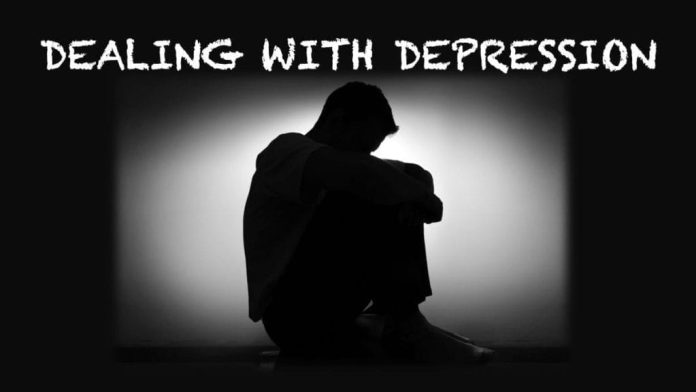Most people mean well when they say things like “just think positive” or “snap out of it.” But for someone living with depression, those words can land like a weight on an already heavy chest. Depression is not a choice. It isn’t a simple decision between happiness and sadness—it’s a complex mix of biology, emotion, energy, and spirit.
For centuries, both science and spirituality have tried to unravel the mystery of depression. Today, psychology provides clinical explanations, while psychics and healers add an often-overlooked layer: the spiritual and energetic dimension. Together, these perspectives remind us that healing is not about blame or willpower, but about compassion, support, and alignment.
The Misconception of “Choice”
One of the most damaging myths is that depression equals weakness. People assume it’s a matter of willpower—that you can smile your way out of despair. This misunderstanding comes from confusing sadness (a passing emotion) with depression (a serious condition).
Imagine telling someone with pneumonia to “just breathe harder.” That’s how it feels when people with depression are told to simply “cheer up.” The hurt is real, and so is the illness. Psychology Today highlights that depression is a medical condition, not a moral failing, and requires treatment just like any physical ailment.
The Science of Depression
Psychology and neuroscience tell us depression can be triggered by:
Brain chemistry: imbalances in serotonin and dopamine.
Genetics: family history increasing vulnerability.
Trauma: unresolved events anchoring the mind in pain.
Environment: isolation, loss, or chronic stress.
Treatment often includes therapy, medication, and lifestyle changes. Verywell Mind explains how evidence-based care helps people regain balance, but emphasizes that there’s no one-size-fits-all cure.
The Emotional and Spiritual Dimension
While science studies neurons, psychics and healers look at energy. Depression often feels like a “soul heaviness” or blockage in the flow of life force. Many psychics interpret depression as:
Blocked chakras: particularly the root (safety) and heart (love).
Ancestral wounds: inherited emotional burdens passed through generations.
Energetic imbalances: dull or clouded auras.
This doesn’t replace therapy but adds another lens. Just as you can heal a cut with both antiseptic and rest, healing depression may benefit from both medical and spiritual support.
Psychic Tools for Understanding Depression
Psychics use various tools to shed light on depression:
Aura readings: noticing dull colors or blocked energy centers.
Tarot cards: The Moon often surfaces, symbolizing hidden fears and illusions. The Star brings hope and healing energy.
Astrology: heavy Saturn transits or Pluto aspects can intensify emotional challenges.
These tools aren’t for diagnosis but for offering perspective, validation, and encouragement.
Stories from Psychic Practice
Ancestral grief: One client carried sadness she couldn’t explain. A psychic uncovered that she was unconsciously carrying grief from her grandmother’s wartime trauma. Recognizing this freed her to begin her own healing.
Cord-cutting release: A man’s depression lifted after a psychic helped him cut energetic ties to a toxic ex-partner. Therapy later reinforced his progress.
Divine timing: Another client was told her depression coincided with a Saturn return—a period of life lessons. This reframe helped her see her struggle as temporary and purposeful.
Why Depression Isn’t Weakness
Depression doesn’t mean someone is weak. In fact, surviving it shows resilience. Many great thinkers, artists, and leaders experienced depression: Abraham Lincoln, Sylvia Plath, Winston Churchill, and countless others. Their lives remind us that struggle and greatness often walk hand in hand.
Across cultures, depression has been seen not only as illness but as transformation. Smithsonian research shows how shamans interpreted melancholy as a calling to spiritual initiation. National Geographic has documented rituals across tribes where mental distress was treated with community healing.
Pathways to Healing—Practical and Spiritual
Practical approaches
Therapy (CBT, talk therapy, EMDR).
Medication when appropriate.
Support groups, connections, and lifestyle changes.
Spiritual approaches
Crystals like amethyst and lepidolite for balance.
Psychic readings for clarity and validation.
When combined, both paths offer wholeness: the science of healing the brain and the spirituality of nourishing the soul.
Supporting Someone With Depression
The wrong thing to say: “Just snap out of it.”
The right thing to say: “I’m here for you. You’re not alone.”
Support can look like:
Listening without judgment.
Offering small, consistent presence (a text, a call).
Respecting boundaries while reminding them they’re loved.
Psychics often recommend sending energetic light, saying prayers, or visualizing healing energy around the person. Even if they don’t consciously know it, they often feel the support.
How PsychicOz Can Help
At PsychicOz, vetted psychics specialize in emotional and spiritual guidance. Clients struggling with depression often find clarity in:
Identifying energy blockages.
Understanding karmic lessons or ancestral burdens.
Gaining hope through intuitive messages.
Psychic readings are never a substitute for medical care, but they can be a compassionate complement that nurtures the spirit while therapy nurtures the mind.
Conclusion
Depression isn’t a choice, and it isn’t a weakness. It’s a complex human experience that requires compassion, not judgment. Science offers treatment, and spirituality offers meaning. Together, they create a fuller path to healing.
If you or a loved one live with depression, know this: you are not broken. You are not alone. And with the right blend of support—medical, emotional, and spiritual—you can find light again.
FAQ: Depression and Psychic Insight
1. Can psychics help with depression?
Yes. Psychics offer energetic and spiritual guidance to complement therapy and healing.
2. What chakras are linked to depression?
The heart and root chakras are most often blocked, creating heaviness or disconnection.
3. Is depression the same as sadness?
No. Sadness is temporary; depression is persistent and affects body, mind, and spirit.
4. Can aura readings show depression?
Yes. Many psychics see dull or clouded colors in the aura when someone is depressed.
5. Is depression a weakness?
Absolutely not. Depression is a complex condition, not a reflection of character.
6. Can astrology explain depression cycles?
Yes. Heavy Saturn or Pluto transits often correlate with emotional challenges.
7. What is ancestral grief in depression?
It’s emotional pain inherited through family lines, sometimes felt unconsciously.
8. Can tarot help with depression?
Yes. Cards like The Moon highlight hidden fears; The Star suggests healing is possible.
9. Is depression a spiritual awakening?
Sometimes. For some, it signals a deep transformation or call to growth.
10. Can crystals support depression recovery?
Yes. Amethyst, lepidolite, and rose quartz are often used for balance and comfort.
11. Should I rely only on psychics for depression?
No. Psychic guidance complements but never replaces medical treatment.
12. Can meditation ease depression?
Yes. Gentle practices calm the mind and support emotional stability.
13. Do pets sense depression?
Yes. Animals often comfort and absorb human sadness instinctively.
14. Can psychics connect depression to past lives?
Yes. Some readings reveal unresolved past-life trauma influencing current struggles.
15. Is depression genetic or spiritual?
Both. Genetics may predispose, but spiritual blocks can deepen the impact.
16. How can I support a loved one with depression?
Offer presence, compassion, and remind them they’re not alone.
17. Do spirit guides help with depression?
Yes. Many psychics believe guides send signs of encouragement during dark times.
18. Can psychic readings bring hope?
Yes. Many clients leave with renewed clarity, direction, and reassurance.
19. Is depression common during Saturn return?
Yes. Many feel heavy lessons surface during this astrological period.
20. Can prayer or energy work help depression?
Yes. Sending healing energy can create comfort and subtle shifts.
21. Why is depression misunderstood as a choice?
Because society often oversimplifies complex mental and spiritual struggles.
22. Can dreams reflect depression?
Yes. Recurring dark or heavy dreams may mirror inner emotional states.
23. Is isolation part of depression?
Yes. Withdrawal is common, but connection supports healing.
24. Can a psychic reading identify blocks causing depression?
Yes. Many reveal energetic or emotional roots to support deeper awareness.
25. Do cultures view depression differently?
Yes. Some see it as illness; others as spiritual crisis or initiation.
26. Can rituals ease depression?
Yes. Candle rituals, affirmations, or cleansing practices can lift energy.
27. What role do ancestors play in healing depression?
Some psychics say ancestors guide healing when patterns are acknowledged.
28. Can journaling and psychic insights work together?
Yes. Journaling helps process psychic guidance and emotions.
29. Can psychics sense when medication is needed?
No. That’s for doctors, but psychics may sense if healing feels blocked.
30. Why choose PsychicOz for depression support?
Because PsychicOz offers vetted, compassionate psychics who provide safe, healing guidance.





The distinction between various types of depression is crucial for effective treatment and understanding. It’s also important to remember that each individual’s experience with depression is unique.
Absolutely, acknowledging the different forms of depression can lead to more personalized and effective care.
The mention of postnatal and bipolar depression was particularly enlightening. Many are unaware of the nuances and complexities of different depressive disorders. This was a very informative read, and certainly something that should be shared widely.
This article is a lifeline for those struggling with depression. The author really did an excellent job elucidating the different facets of this debilitating condition and offering practical guidance. I appreciate the empathy and understanding conveyed throughout the piece.
This piece highlights the importance of support systems for individuals dealing with depression. I appreciate the emphasis on empathy and understanding for those affected.
The article provides a holistic perspective on the multifaceted nature of depression. It is essential for society to understand that mental health should be given the same priority as physical health.
The call to maintain a healthy lifestyle for better mental health is well-noted. However, societal and medical support should not be overlooked.
Correct, a support system combined with lifestyle changes can be very effective in managing depression.
Indeed, while personal efforts are important, external support and professional help are indispensable.
The article concludes on a hopeful note, offering encouragement to those in the throes of depression. It’s a reminder that reaching out for help is a sign of strength, not weakness.
Did I just read a self-help brochure? The article’s advice sounds straight out of ‘Mental Health for Dummies.’ Seriously, if eating well and exercising were all it took to cure depression, we wouldn’t need psychologists, would we?
Ah, depression—a condition that can be mitigated by the magic of kale and jogging. Because surely, after centuries of grappling with mental health, the secret is just a good salad and a brisk walk. Thanks for the enlightenment!
While the article makes some valid points, it feels overly simplistic. There’s no real deep dive into the complex etiology of depression or the latest scientific research in this area. It reads more like an elementary primer than a substantive discussion.
Comments are closed.